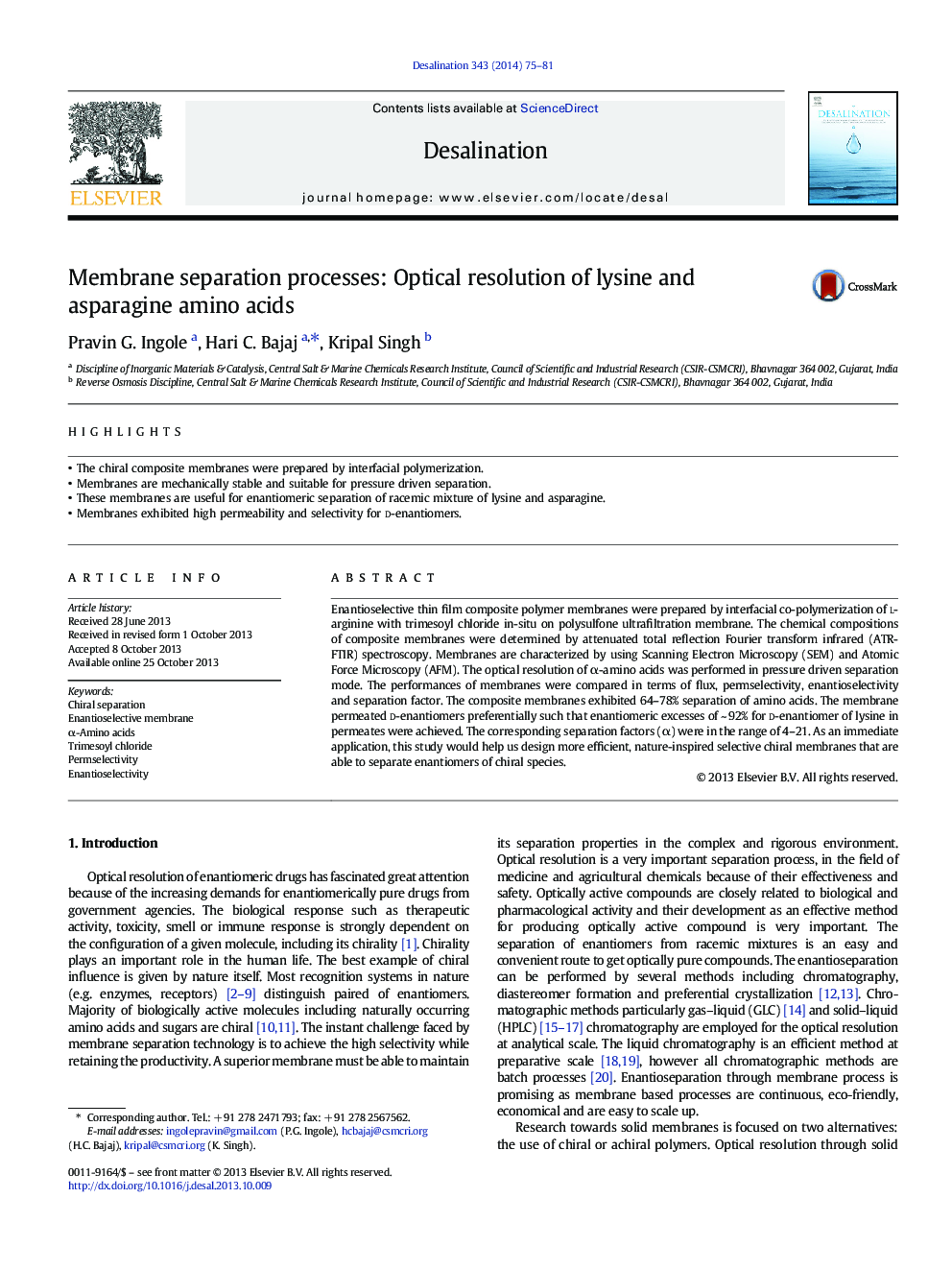| Article ID | Journal | Published Year | Pages | File Type |
|---|---|---|---|---|
| 623547 | Desalination | 2014 | 7 Pages |
Abstract
Enantioselective thin film composite polymer membranes were prepared by interfacial co-polymerization of l-arginine with trimesoyl chloride in-situ on polysulfone ultrafiltration membrane. The chemical compositions of composite membranes were determined by attenuated total reflection Fourier transform infrared (ATR-FTIR) spectroscopy. Membranes are characterized by using Scanning Electron Microscopy (SEM) and Atomic Force Microscopy (AFM). The optical resolution of α-amino acids was performed in pressure driven separation mode. The performances of membranes were compared in terms of flux, permselectivity, enantioselectivity and separation factor. The composite membranes exhibited 64-78% separation of amino acids. The membrane permeated d-enantiomers preferentially such that enantiomeric excesses of ~ 92% for d-enantiomer of lysine in permeates were achieved. The corresponding separation factors (α) were in the range of 4-21. As an immediate application, this study would help us design more efficient, nature-inspired selective chiral membranes that are able to separate enantiomers of chiral species.
Keywords
Related Topics
Physical Sciences and Engineering
Chemical Engineering
Filtration and Separation
Authors
Pravin G. Ingole, Hari C. Bajaj, Kripal Singh,
